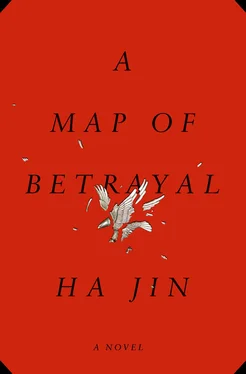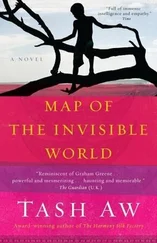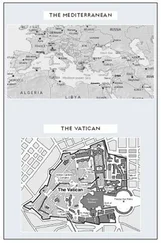“Sonya, let’s be rational about this. I also love babies and so does Ben. Tell me, would you be happy if you two got married?”
“Of course, I’d be the happiest girl on the East Coast!”
“So you used the baby to keep your hold on him?”
She let out a small sigh. “Lilian, you’re a smart woman and can see right through me. Let me say this: I can’t stand to see him blabbing with those bitches on his blog all the time, and I will be jealous as hell if he ends up with another woman. I know he’s just keeping me around as a girlfriend, but still I would do anything for him.”
It was clear she loved him. But did he really love her as he claimed? I wasn’t sure. How should I advise Ben then? In a way I was amazed to hear Sonya speak about her feelings like a young girl. Obviously she was not as sophisticated as her age and face might suggest. I liked her more for her innocence and bullheadedness.
I talked with Henry about Ben’s trouble. He said, “What’s the big deal? Get married. If the marriage doesn’t work, get a divorce.”
I wouldn’t suggest that, because a divorce can be a big block in a young man’s life, psychologically and professionally, a setback that can cripple his confidence. Perhaps it was unwise for Ben to attempt a solution right away. There are problems that are not supposed to be fixed once and for all but to be lived with. Sometimes a solution can give rise to a new problem — in other words, there might be no ultimate solution at all. We Americans tend to be self-proclaimed problem fixers of the world, and such a mentality is one of the causes of our tragedy — there are many problems we can’t possibly fix.
I called Ben the next day and asked him not to impose his will on Sonya. He needn’t rush. He had another two months to work with her for a solution. Once the pregnancy reached the fifth month, it would be too risky to abort the fetus. Then they might have to let the baby come into the world and figure out how to raise it.
“In fact, you should always take a child as a blessing,” I told Ben.
“Okay, I’ll try to think that way,” he said, but he didn’t sound convinced.
“You should also do some soul-searching.”
“Why should I do that?”
“To answer the question of whether you’ll be happy if you spend the rest of your life with Sonya.”
“About that I have no doubt.”
He sounded a little blithe, but I didn’t press him to say more.
It was reported that Mao Zedong had been so impressed by Gary’s analyses of the U.S. motivation in publishing the news about the Soviets’ planned air strikes on China’s nuclear bases that the chairman told his comrades in the Politburo, “This man is worth four armored divisions.” Those words heralded an imminent rise in Gary’s spying stature.
The intelligence he had sent back helped Mao see the Americans’ motivations in a new light and make appropriate decisions in response to international events. For years the White House had been thinking about how to establish some relationship with Beijing, because the United States regarded the Soviet Union as the archenemy, more dangerous and destructive than China. The gulf between the two Communist countries was no longer news, but how could America exploit their animosity to reshape the world’s political structure to its own advantage? No one at the White House could give a definite answer. All they knew was that they should engage China, with whom they might even cultivate some trade in the course of time, considering its huge population and vast market. At the moment this policy of engagement was the rule they would follow.
Who could have imagined that the rotation of the globe of international politics suddenly accelerated by the spinning of a tiny Ping-Pong ball? In early April 1971, the U.S. national team went to Nagoya, Japan, to compete in the thirty-first World Table Tennis Championships. By chance, an American athlete, Glenn Cowan, boarded a bus transporting the Chinese team to a stadium. When he saw his mistake, the door had already closed. He had no choice but to take the ride, standing behind the driver and displaying “USA” on the back of his dark blue sweater to the Chinese athletes. During the ride nobody said a word to the young American, but as the bus was approaching the destination, Zhuang Zedong, the three-time world champion then, was bold enough to say a few welcoming words to Cowan and even presented an embroidered kerchief to him. Though overjoyed, the American man had nothing on him with which he could reciprocate. But he waylaid Zhuang the following day and gave him a T-shirt with a U.S. team button attached to it. Their meeting was photographed by many reporters, and pictures of the American and Chinese athletes exchanging presents appeared in some newspapers that very evening. The incident became international news.
Toward the end of the tournament, the Chinese, having won three gold medals, invited a few Ping-Pong teams, including the Mexicans and the Canadians, to visit China. The Americans, an underdog team in the sport, approached the Chinese to see if it might be possible to get invited as well, since their southern and northern neighbors both were heading to China. Immediately the Chinese reported the request to their Ministry of Foreign Affairs, which suggested turning the Americans down. Then the matter was forwarded to Premier Zhou Enlai, who also believed there was no justification for a hostile country’s Ping-Pong team to come for a visit. But when the Americans’ request was reported to Mao, the chairman was amazed and cried out his admiration for the leading Chinese athlete. “My uncle Zhuang, what a diplomat! Smarter than the professionals.” Mao gave instructions to invite the U.S. team without delay. But his aide, who was also his head nurse, wouldn’t pass on the order because there was a rule that after Mao took a sleeping pill, his words would not count. Seeing the woman still sitting there, the chairman demanded, “Why won’t you send out my order?” She answered, “You just took a sleeping pill and I can’t break the rule.” Mao burst out, “To hell with the rule! Go call the Foreign Ministry and tell them we invite the U.S. team right away. Go, go, I hope it’s not too late.”
Thus began the well-known Ping-Pong diplomacy, which paved the way for the official exchange between China and the United States. A perceptive politician, Mao seized an insignificant occurrence, the casual meeting of two athletes, and turned it into an opportunity to effect a historic breakthrough in international politics. By inviting the American athletes, he meant to signify to the White House that China was ready to open itself to the United States. Three months after the U.S. Ping-Pong team’s successful visit, National Security Adviser Henry Kissinger went to China secretly via Pakistan and mapped out the plan for President Nixon’s official trip to Beijing in February 1972, which led to normalizing the two countries’ relationship in 1979.
However, in the beginning, the Chinese leaders couldn’t help but question the wisdom of receiving the U.S. president in Beijing. They were uncertain about Nixon’s sincerity. The Americans were notorious for their deceptions and unscrupulousness, especially when their national interests were at stake. What if they went back on their word? What if Nixon got cold feet and at the last moment wouldn’t come? That would be an international embarrassment. Even if he came, what if he refused to sign a joint communiqué? What if he demanded more than was reasonable? The whole thing could turn out to be a trick to humiliate China in the eyes of the world.
Those kinds of misgivings fed the intense debate in the Politburo. Even Mao couldn’t make up his mind in spite of his eagerness to use the United States to offset the Soviet threat. Therefore, directly from the top came an order for Gary Shang: try your utmost to verify the U.S. intention in making overtures to China.
Читать дальше











